 Turnip sculptures amaze tourists in Qingdao
Turnip sculptures amaze tourists in Qingdao Chinese ship formation conducts live fire training in West Pacific
Chinese ship formation conducts live fire training in West Pacific
 China comes in third at figure skating team event
China comes in third at figure skating team event
 China's teenager skater Yan shines at his Olympic debut
China's teenager skater Yan shines at his Olympic debut
 Taiwan-born actor stars on US TV series
Taiwan-born actor stars on US TV series
 Chinese Lunar New Year gift from abroad
Chinese Lunar New Year gift from abroad Chinese champions of Winter Olympic Games
Chinese champions of Winter Olympic Games  Zhang Yimou fined 7.48 mln for over-production
Zhang Yimou fined 7.48 mln for over-production
 Top 10 timeless female Chinese stars
Top 10 timeless female Chinese stars
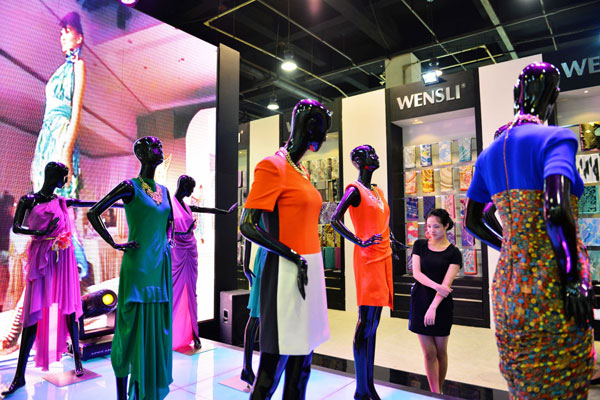 |
| Silk has been a pillar industry of Hangzhou for more than 1,300 years. The city is said to contribute a quarter of the world's silk supply. Photos provided to China Daily |
Can Hangzhou's fashion products capture the allure of Hermes?
For a product that has been a staple of East-West trade for more than 2,000 years, it has an elegant allure that never seems to show any signs of age.
Gracing catwalk clothing in the world's fashion capitals and adding a dash of class to attire everywhere else, silk takes some beating.
Originating in China, it was transported to the rest of the world in large quantities as early as the Western Han Dynasty (206BC-AD24). Even today, it is likely that the silk you see anywhere will have come from China.
A report issued by China International Silk Forum, held in November, reckoned that over the past decade China made nearly 80 percent of the world's silk. Among the Chinese cities that contribute to that mountain of fabric is Hangzhou, which is said to provide a quarter of the global supply.
In the first half last year, the city exported 44.2 million tons of silk, worth $439 million, the city's customs office says.
"Silk has been a pillar industry of Hangzhou for more than 1,300 years, since the Tang Dynasty (618-907)," says Fei Jianming, chairman of Hangzhou Silk Association. "Hangzhou silk now accounts for 30 percent of the domestic market share. There are more than 1,000 silk companies in the city."
The industry went through a downturn in the 1990s and the early 2000s. Now the city's silk makers have the opportunity to increase their global influence, he says. However, a lot more innovation and creativity are needed to take the industry up the value chain.
"Silk, with its cultural background and scarcity, has long been a fabric of choice among upmarket Westerners, but the industry in Hangzhou, as large as it is, has failed fully to capitalize on that."
In US dollars, the foreign exchange earned through the city's silk exports is only 8 percent that of Italy's and no more than 10 percent of South Korea's, he says.
Tu Hongyan, chairwoman of Wensli Group, the largest silk maker in Hangzhou in terms of sales revenue, says that while China produces the vast majority of the world's silk, it does not have a self-run silk brand that is known to the world.

 Top 10 Chinese youth’s favorite seaside destinations
Top 10 Chinese youth’s favorite seaside destinations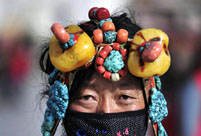 Traditional Tibetan clothing tailors
Traditional Tibetan clothing tailors In photos: Unveiling Taishan station
In photos: Unveiling Taishan station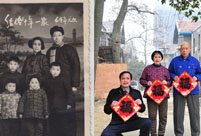 Beautiful moments of family reunion
Beautiful moments of family reunion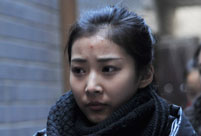 It's not just performing this year
It's not just performing this year 10 Valentine's Day ideas for couples
10 Valentine's Day ideas for couples Let's get married today!
Let's get married today! Highlights of opening ceremony of Sochi 2014 Winter Olympics
Highlights of opening ceremony of Sochi 2014 Winter Olympics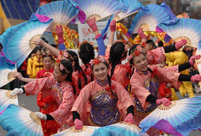 Highlights of Chinese New Year celebrations around the world
Highlights of Chinese New Year celebrations around the world  Ruins of Shang Dynasty's structure unearthed in Shaanxi
Ruins of Shang Dynasty's structure unearthed in Shaanxi  Intercity high speed train in operation for the first
Intercity high speed train in operation for the first  Severe coldness freezes large parts of China
Severe coldness freezes large parts of China  Beautiful moments of Sochi
Beautiful moments of Sochi  It's not just performing this year
It's not just performing this year Selfies of "Little colorful flag" girl unveiled
Selfies of "Little colorful flag" girl unveiled Day|Week|Month